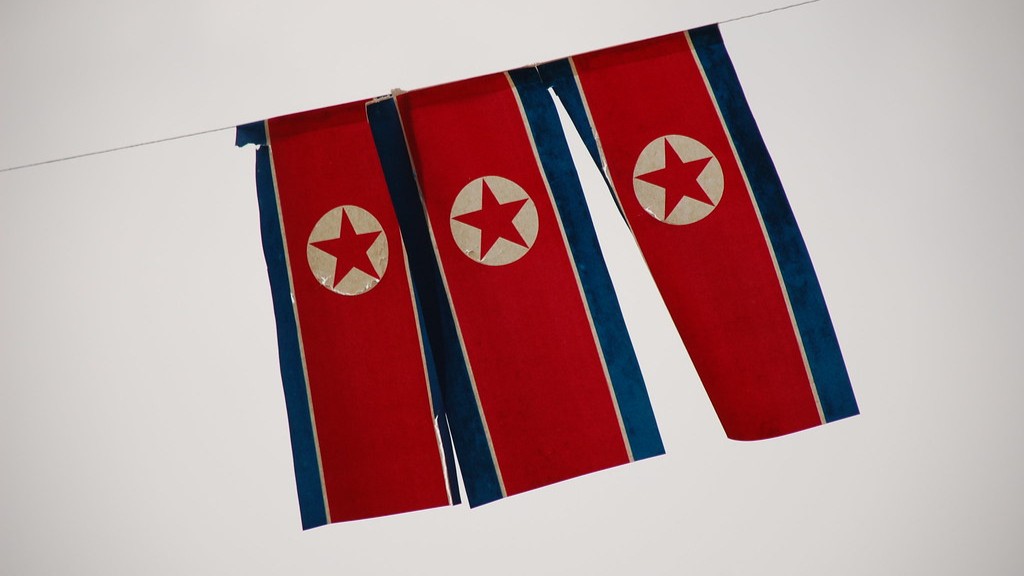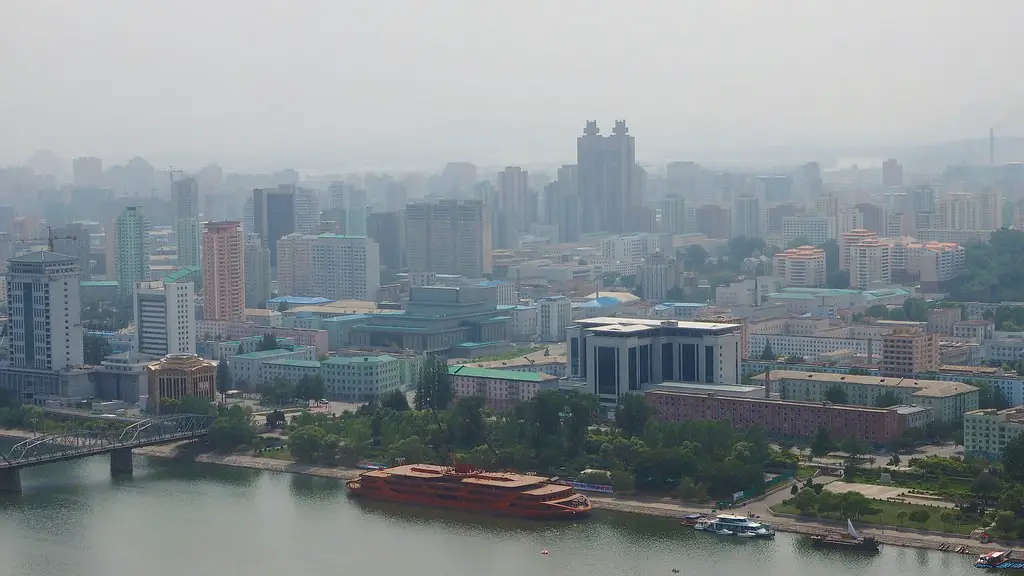1. Historic Context of the Nuclear Issue between North Korea and the US
North Korea and the US have long been involved in a nuclear issue. The issue has been an on-again, off-again affair since the early 1950s. It began when North Korea refused to comply with the United Nations’ demand that they relinquish their nuclear weapons. The US responded with crippling economic sanctions, as well as military threats. This resulted in an arms race between the two countries, with both increasing their forces and threatening to engage in nuclear warfare. In the present day, North Korea is estimated to have up to twenty nuclear weapons, with the capability for many more.
2. North Korean Leadership’s Stand on the Issue
The North Korean government has insisted that they will not give up their nuclear weapons under any circumstances, citing security concerns and regional instability as the determining factors for their stance. North Korean officials claim that the nuclear weapons are necessary for their country’s protection. They have also argued that the US and South Korea have not been willing to negotiate in good faith and have thus prevented an agreement from being reached.
3. Current Developments in the Nuclear Standoff
In recent years, the tension between North Korea and the US has eased somewhat. During the Trump administration, President Trump and North Korean leader Kim Jong-Un met several times to discuss the nuclear issue. Despite this, no satisfactory agreement has been reached. Still, the US and other member countries of the United Nations have continued to put pressure on North Korea, passing resolutions to further pressure Kim and his government into abating their nuclear ambitions.
4. Impact of Sanctions on North Korea’s Economy
Sanctions are one of the main ways that the US and other countries have sought to pressure North Korea into giving up their nuclear weapons. The sanctions have had a dramatic effect on the North Korean economy. According to the International Institute for Strategic Studies, North Korea’s GDP is 15% less than it was before the sanctions were put in place. This figure is likely to rise, as the sanctions remain in effect and the economy continues to suffer.
5. Chinese Influence on North Korea
Another factor which must be taken into account when discussing the issue of North Korea and its nuclear weapons is the role of China. China has long been seen as one of the main supporters of the North Korean government and economy. China has provided economic aid to North Korea, as well as military support in the form of weapons and equipment. The Chinese government has also spoken out in favor of North Korea’s nuclear ambitions and stance, thus strengthening the North Korean government’s position in the matter.
6. Expert Analysis
Experts in the field of international relations are divided on the issue of North Korea and its nuclear ambitions. On the one hand, some have argued that North Korea will never give up its weapons, citing the government’s hard-line stance on the issue. On the other hand, there are those who believe that a diplomatic solution is possible, provided that all parties involved are willing to make the necessary concessions.
7. Opinion and Consequences of Not Reaching an Agreement
Ultimately, the goal of the international community should be to find a diplomatic solution to the crisis. If North Korea is adamant in its refusal to give up its nuclear weapons, then the only other option would be military action, something that could prove disastrous for the region. It is therefore in the interests of all parties involved to find a viable agreement that would ensure a peaceful resolution to the crisis.
8. Military Conflict and Nuclear War
Should North Korea and the US fail to reach an agreement, there is a risk that the tensions between the two countries could escalate into a full-blown military conflict, possibly even leading to nuclear war. This would have disastrous consequences for both countries, as well as the region. It is therefore essential that both sides exercise restraint and continue to pursue diplomatic means in order to avoid a potential catastrophe.
9. International Pressure on North Korea
The international community, as well as the US, has put considerable pressure on North Korea in an effort to persuade them to give up their nuclear weapons. This has taken the form of economic sanctions, military threats, and diplomatic pressure. While the US and its allies have achieved some success in pressuring North Korea, this pressure has been met with defiance from the North Korean government and no commitment to disarm has been made.
10. Impacts of North Korea Giving Up Nukes
Should North Korea eventually agree to give up their nuclear weapons, the consequences would be momentous. Not only would it mean a safer, more secure world, but it would also open up possibilities for increased trade and political relations with North Korea. This could potentially result in a more prosperous future for the people of North Korea and the region as a whole.
11. Leadership Change in North Korea
Since Kim Jong-Un came to power in 2011, there have been no attempts to negotiate with the US or other countries in order to reach an agreement concerning the North Korean nuclear program. Therefore, it is possible that a change in leadership could lead to a more open and conciliatory negotiations with the international community. The possibility of a leadership change in North Korea has certainly raised some optimism amongst those in the international community who are keen to see a resolution to the crisis.
12. Possible Solutions and Diplomatic Actions by US
The US has taken various diplomatic steps towards resolving the issue of North Korea’s nuclear program. These have included sanctions, negotiations, and economic incentives. It is hoped that these efforts will eventually lead to an agreement that would be beneficial to both North Korea and the US. While any solution will likely be complex and difficult to achieve, with the right diplomatic approach and engagements there is hope for a resolution.
13. North Korean Foreign Policy and Other Major Countries
While the nuclear issue between North Korea and the US is the central focus, North Korean foreign policy towards other countries in the region can also have an impact. North Korea has historically been hostile towards some of its neighbours, particularly South Korea and Japan, and this has caused tension in the region. Moreover, North Korea’s relations with China are also of importance, as China is one of the major players in the region and could potentially act as a mediator in any agreement between North Korea and the US.
14. Role of Non-Governmental Agencies in Resolving the Standoff
Non-governmental agencies such as the United Nations and other international organizations have also played a role in attempting to resolve the issue. These organizations have put pressure on North Korea through economic and diplomatic measures and have engaged in negotiations with the North Korean government. Additionally, non-governmental organizations have provided humanitarian aid to North Korea, as well as advocating for a peaceful resolution to the nuclear crisis.
15. Public Perception
Finally, public opinion of North Korea and its nuclear weapons program must also be taken into consideration. While many in the US are opposed to the idea of North Korea having nuclear weapons, there are others who are more sympathetic, arguing that North Korea has a right to defend itself. These differing views can complicate the situation, as it can make it difficult to reach an agreement that is acceptable to both sides.



